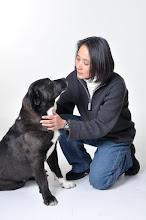I am one of many who have begun walking the journey ... aging parents and loved ones who have alzheimer/dementia - a difficult, heart-wrenching journey. It's amazing how many lives it touches. I have found comfort in words and in writing ... and in my search to learn more I found this book "Beyond Forgetting: Poetry and Prose about Alzheimer's Disease."
It gives me comfort to know i'm not alone. Yet I remain haunted by the fear that consumes my mom .... she is on her way back to the Philippines. She has been begging us to bring her back home. I pray we have made the right decision.
"Beyond Forgetting is a unique collection of poetry and short prose about Alzheimer's disease written by 100 contemporary writers--doctors, nurses, social workers, hospice workers, daughters, sons, wives, and husbands--whose lives have been touched by the disease. Through the transformative power of poetry, their words enable the reader to move "beyond forgetting," beyond the stereotypical portrayal of Alzheimer's disease to honor and affirm the dignity of those afflicted .... "
and Holly Hughes in the preface shares:
"My mother died of Alzheimer's disease at dusk on the last day of April in 2001. At 75, she was still in good physical health--she had danced a polka just a few weeks before--so her death from this disease seemed all the more tragic. For my family, her illness had been a slow process of subtraction, as we lost her one brain cell, one synapse at a time. She had been an articulate, vivacious woman, and we had to watch her lose not just her memory but all that went with it--intelligence, judgment, dignity--all that we believe makes us conscious human beings. As the disease took away more and more of the person I'd known as my mother, I had to look hard to see what was left. I tried to be with her where she was, but she drifted out of reach of reason, of our accepted ways of being in the world. How could I stay beside her in this journey? Words may have failed her, but I still had them. As with any grief that feels unspeakable, I turned to poetry.
Gradually, the practice of writing gave me entry into another world, a world larger than the small room where my mother's life ended. Writing poems made it possible to see that even in the darkest stretches, there were still moments of grace: her delight in seeing the scarlet flash of a cardinal at the feeder; rare glimmers of recognition in her blue eyes; funny conversations as the letters of her alphabet piled up. The losses may have been beyond imagining, but so were the unexpected gifts. Because she no longer had a past or future, she showed us how to live in the present.
Writing poems became a way to witness honestly while reminding me to dwell in the present alongside my mother. In our culture, we often talk about dementia only in the abstract, as a label, not in all its bittersweet concreteness. Many of us grew up hearing about relatives who, approaching the end of their lives, were "not quite there," "a little off," "touched." Now, because it is touching so many lives, Alzheimer's disease forces us to acknowledge it. .....
In her essay, "Poetry and Uncertainty," Jane Hirshfield writes of the role of poetry in allowing us to enter into the unknown: "Poetry comes into being as a response to a kind of fracture of knowing and sureness: from not understanding, yet still meeting what arrives." The writers in this collection have done just that, meeting what arrives with courage and tenderness. Hirshfield also suggests how poetry might provide solace: "In entering the imaginative, metaphoric, or narrative expression of another, even if it is the expression of pain, longing or fear, you find yourself less lonely, accompanied in this life."




No comments:
Post a Comment